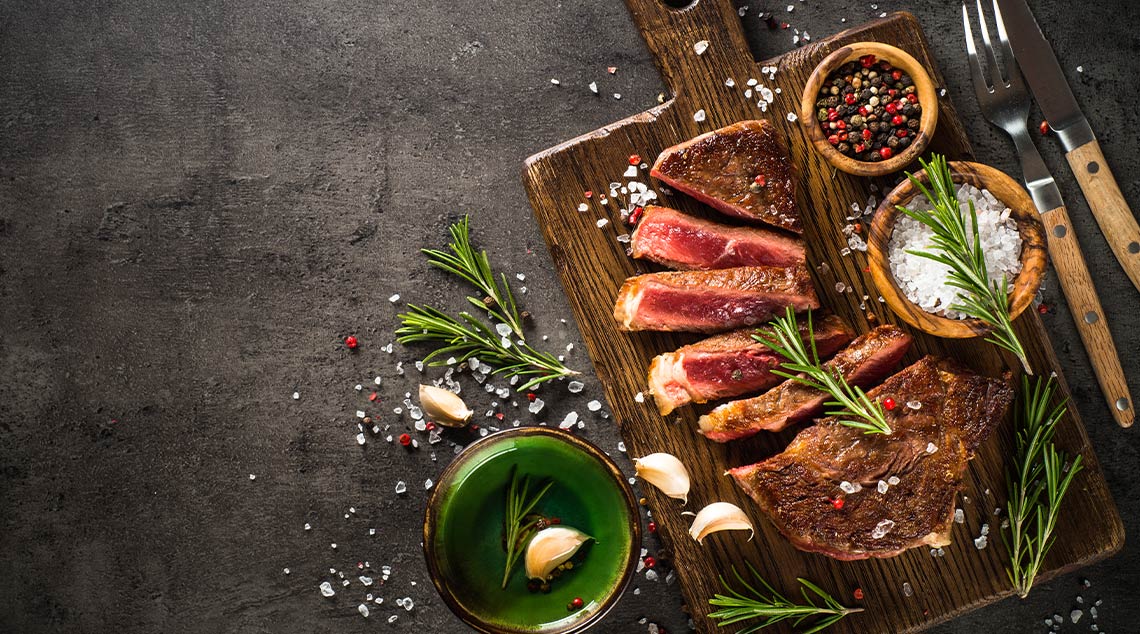What experts say about the carnivore diet
By excluding all plant foods and focusing on meat, the carnivore diet takes low-carb eating to new extremes. But is it good for you or are you risking your health?
Ever since comedian and podcast host Joe Rogan documented his experience following the carnivore diet on Instagram, the eating plan has been gaining popularity.
Given his millions of followers, it’s not surprising — but what exactly is the carnivore diet?
And is it good for you or simply another fad diet?
What is the carnivore diet?
The carnivore diet is based on the idea that humans evolved to hunt and eat meat and fish, and that plant foods back then were merely a back-up option.
Proponents of the diet claim that plant-based foods are the cause of modern-day health problems, and eliminating them can deliver better health.
But Dietitians Australia, the peak body for dietetic professionals, has called out the carnivore diet as a fad diet.
The Longevity Remedy nutritionist, naturopath and anti-ageing practitioner Michaela Sparrow agrees.
“Fad diets like the carnivore diet tend to gain popularity for their promise of rapid and significant health benefits or weight loss that doesn’t support long-term health and sustainability,” Michaela says.
What can you eat on the carnivore diet?
The carnivore diet food list includes meat, fish, chicken and other animal foods such as eggs, organ meats and fats, including lard and suet.
Low-lactose dairy foods are also allowed.
Fruits, vegetables, legumes, grains, nuts and seeds are strictly off the menu.
What does a typical carnivore diet plan look like?
Eating twice daily, combined with some type of fasting, is common on the carnivore diet.
Every meal consists of meat or animal products only.
When Joe Rogan does the carnivore diet, he eats two meals a day — the first, eaten around midday, is typically several eggs; dinner is grass-fed elk or beef steak with some bacon.
Is the carnivore diet healthy?
According to a 2021 study, people who followed the diet reported a variety of health benefits, including improvements in energy, sleep and focus, as well as in weight and some chronic conditions.
Nutritionist Solaine Douglas is sceptical of the findings.
“The study itself highlights several design flaws, most importantly the self-reported data which is prone to unintentional and intentional error,” Solaine says.
Still, she says, for people with health conditions such as type 2 diabetes or even some types of autoimmune diseases, there are going to be some benefits to a carnivore diet.
“For example, a carnivore diet contains basically no carbohydrate, which can help to reverse type 2 diabetes,” Solaine explains.
“Could this be achieved with a less-extreme approach? Yes.”
Michaela says the fact that the diet eliminates ultra-processed foods is a positive.
“It’s also high in protein, which will promote satiety and help with muscle maintenance and growth,” she adds.
“Protein is also essential for various bodily functions, including hormone production and immune system support.”
The downsides of the carnivore diet
While Dietitians Australia flags long-term concerns to do with cancer and heart disease as the carnivore diet’s main issues, our experts say there are other negatives to be aware of too:
Nutrient deficiencies
“There’s an increased risk of nutritional deficiencies of many vitamins and minerals, in particular, many phytonutrient compounds that are only found in plants and have specialised roles within the body to support its proper functioning and healthy ageing,” Michaela says.
Poor gut health
“There is also a risk of reduced microbiome diversity in the gut, because the lack of prebiotic fibres — found in plant foods — can lead to a reduction of the strains of bacteria in your gut,” Michaela notes.
Early ageing
Solaine says the high consumption of muscle meat is also problematic.
“Muscle meat is high in methionine, which is an amino acid that, when consumed in excess, increases a pathway in the body called ‘mTOR’,” she explains.
“This is linked to early ageing and some cancers.”
Before you jump on board…
Before you start any new diet because an influencer or podcast host recommends it, Solaine advises thoroughly investigating all potential positives, as well as negative outcomes.
“Don’t put your blinders on — people with health influence are typically doing a lot more than the label we see on the surface,” she says.
More on diets and healthy eating:
- Heard of the liver cleansing diet? Here’s what you need to know
- Is the Harvard Plan the healthiest diet you’ve never heard of?
- The 5 vital nutrients you need to prioritise in your diet
- Kitchen hacks that get the dietitian’s tick
Written by Karen Fittall.





